How to freeze potatoes to save time and save money
Have you ever wondered whether you can freeze potatoes? It can be a waste to buy a large bag of potatoes which then quickly goes off. The answer is yes. With a little preparation, popping the potatoes in the freezer can achieve great results. So, next time you are wondering what to do with a glut of potatoes simply look at freezing some.
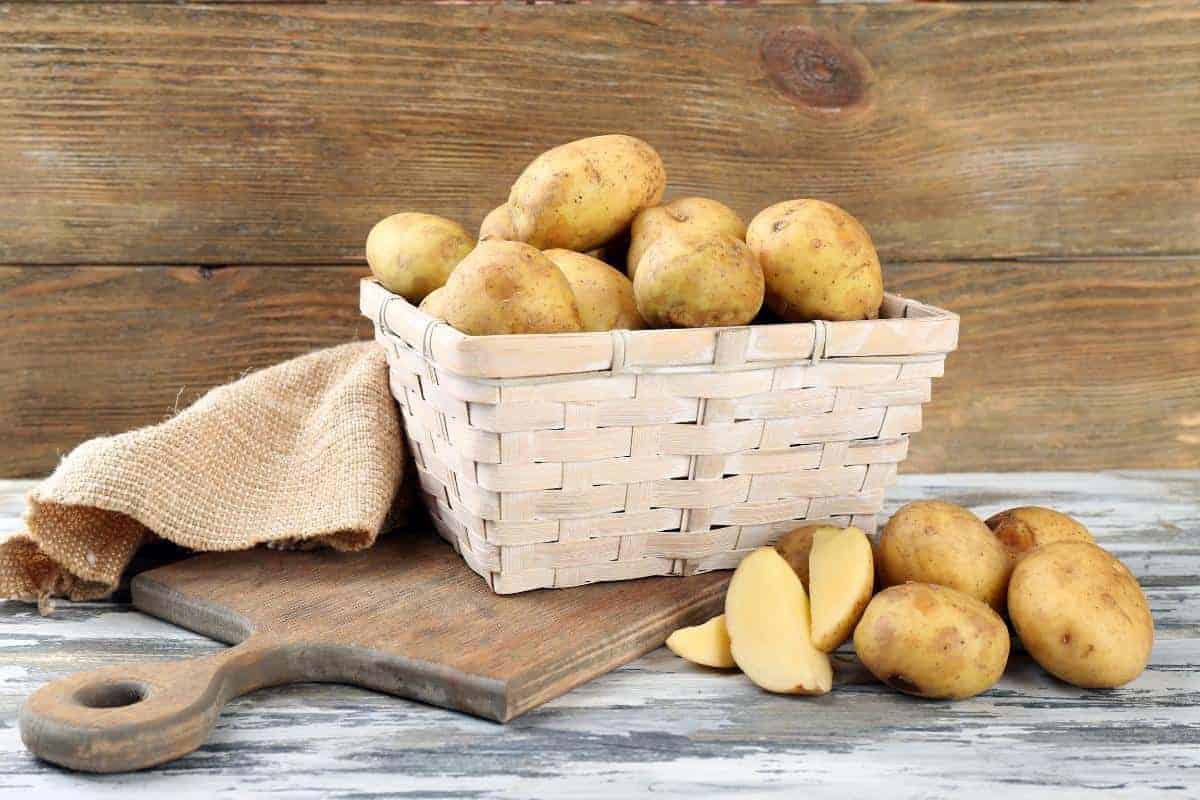
Storing potatoes
Mature potatoes can be stored for months in the dark at a temperature of 7-10°C (45-50°F). If you live in a warmer climate, you may find long-term storage results in loss through decay or sprouting.
Potatoes can be stored at lower temperatures, but this results in some of the starch turning to sugar, adversely affecting the taste when cooked.
New potatoes, the immature variety harvested earlier in the year, can only be stored for relatively short periods.
Freezing potatoes can, therefore, prove to be an effective additional method of storage, making even more budget meals.
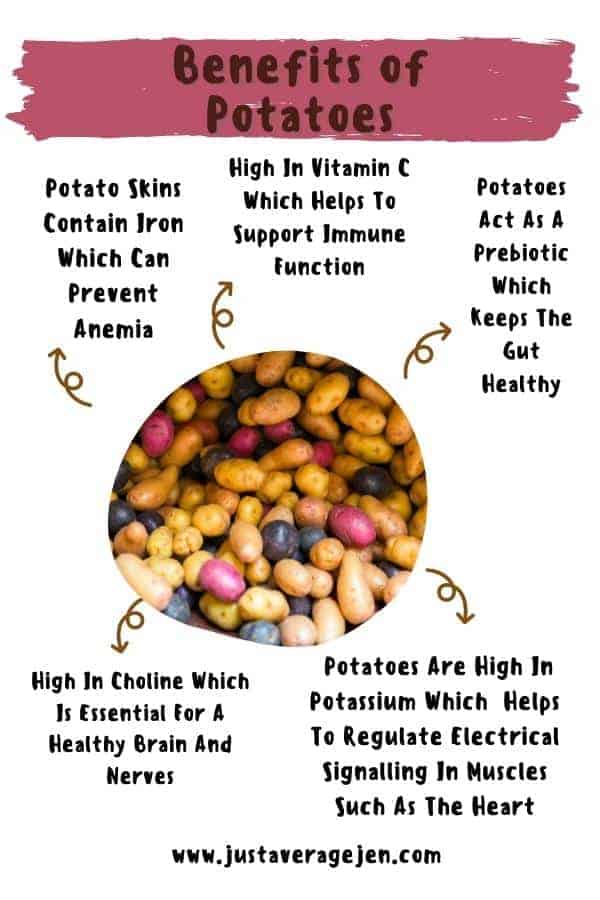
How to Freeze Potatoes When Uncooked
Freezing potatoes successfully means using cooked or partially cooked potatoes. The method used to prepare raw potatoes for freezing is called blanching.
Blanching involves immersing prepared potatoes into fast-boiling water for two to three minutes before removing and plunging them immediately into a bowl of iced water.
The brief cooking time in boiling water renders the enzymes inactive. The ice-cold water stops the cooking process, helping to preserve the potato’s nutrition, shape, and colour.
Peel the potatoes and then chop as required. Your potatoes are now ready for blanching. Remember that to freeze successfully you need to start with good-quality produce.
Do not freeze potatoes that are already soft, wrinkled, and past their best. The quality of what you take out of a freezer will depend on the quality of what went in.
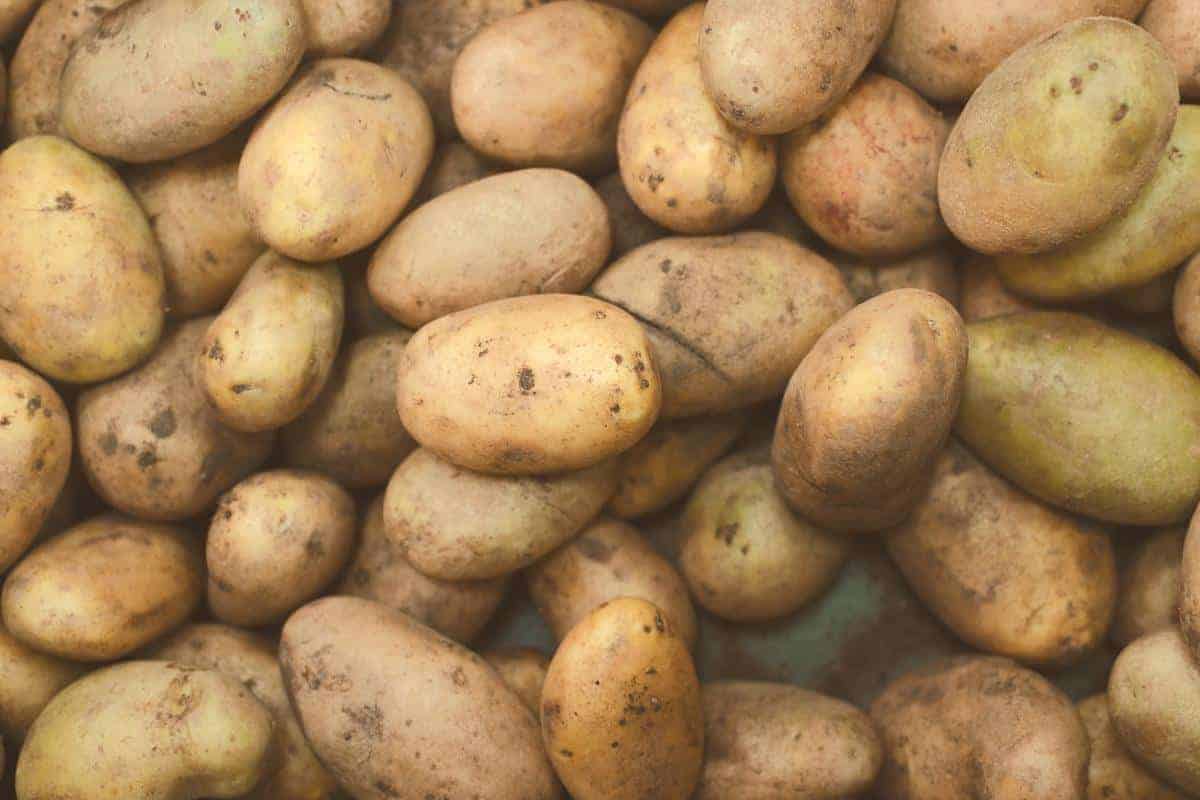
Can I freeze potatoes raw?
Whilst you can freeze potatoes raw they do not freeze as well and it is much better to cook them partially and then freeze them if you can.
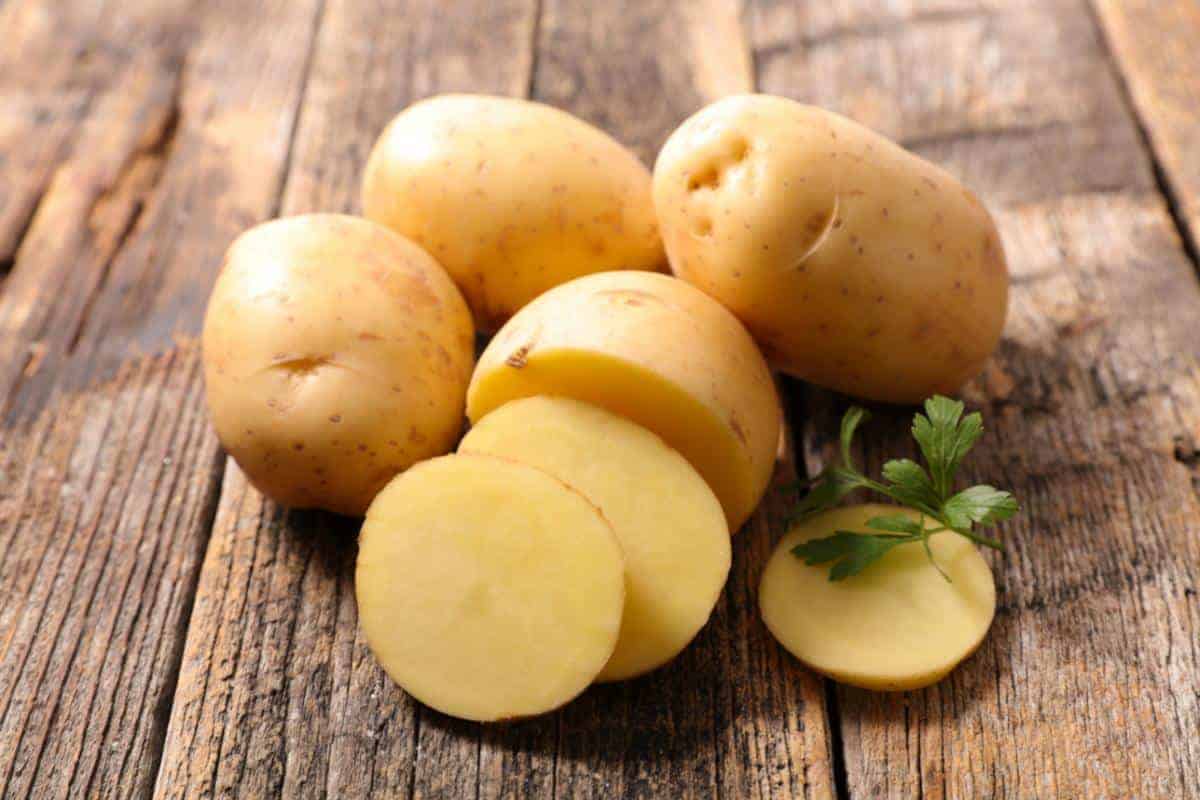
How to freeze new potatoes
New potatoes are too small to cut before blanching and freezing so simply blanch them, then cool and freeze them ready for when you want to use them.

Tips for freezing potatoes
If you are blanching large quantities, make sure you only add a small amount at a time to the boiling water. If you add too much, you will reduce the temperature of the water and its effectiveness on the enzymes.
Remove them with a slotted spoon and plunge them immediately into iced water. You are aiming to cool completely as quickly as possible. If you are blanching a large quantity, keep an eye on the temperature of the iced water too, so it doesn’t warm up.
Once blanched and cooled, the potatoes can be patted dry, open frozen in a single layer on a baking sheet lined with paper or sprayed with oil.
Open freezing is the way to ensure your frozen potatoes are free-flowing. Once completely frozen, the potatoes can be bagged, sealed, and labelled.
They can be stored in the freezer for up to a year if well-prepared and packaged.
Make sure your packaging is as airtight as possible. This will reduce the risk of the potatoes making contact with the dry air in your freezer, resulting in freezer burn. (Freezer burn permanently damages the texture of food, giving a stale flavour on reheating).
To reheat frozen blanched potatoes, boil them straight from the freezer in salted water until tender, deep fry them from frozen, or roast them in the oven.
You can also thaw thoroughly before cooking, just adjust your cooking times accordingly.

How to freeze Potatoes When Cooked
In addition to blanching, potatoes store particularly well when frozen as a cooked dish. Freezing cooked potatoes as mash, roast, or baked potatoes all do well.
Once frozen, they can be stored for 2-3 months. You can enjoy popping them in the air fryer ready chopped in the summer for delicious, quick, fuss-free potatoes.

Freezing mashed potatoes
To freeze mashed potatoes, prepare the mash in your usual way. Freeze in individual portions, to give you greater flexibility, or in family-sized portions – perfect for a roast dinner.
To freeze individually, place appropriately-sized portions on a lined/sprayed tray. An ice cream scoop is ideal for this, making the process quick and ensuring the portions are of a regular size. Open freeze and then pop in a freezer bag. Remove excess air, seal, and label.
To reheat, bake them in the oven, giving them a lovely crusty outer layer with a soft centre, or microwave them for a quick supper or side dish. Always ensure it is piping hot before serving.
To freeze mash in larger portions, spray a dish with oil, fill with mash, make sure you leave a small gap at the top, cover, and freeze.
Ovenproof dishes with plastic lids are ideal for this. If you are short on dishes or want to save freezer space, line your dish with foil, mash, and freeze.
When frozen, remove from the dish, wrap in foil and then plastic wrap. When you need to reheat it, unwrap it completely and pop it back into the same dish to defrost and cook.
Defrost overnight in the fridge and then bake in a hot oven until cooked through and brown on top.
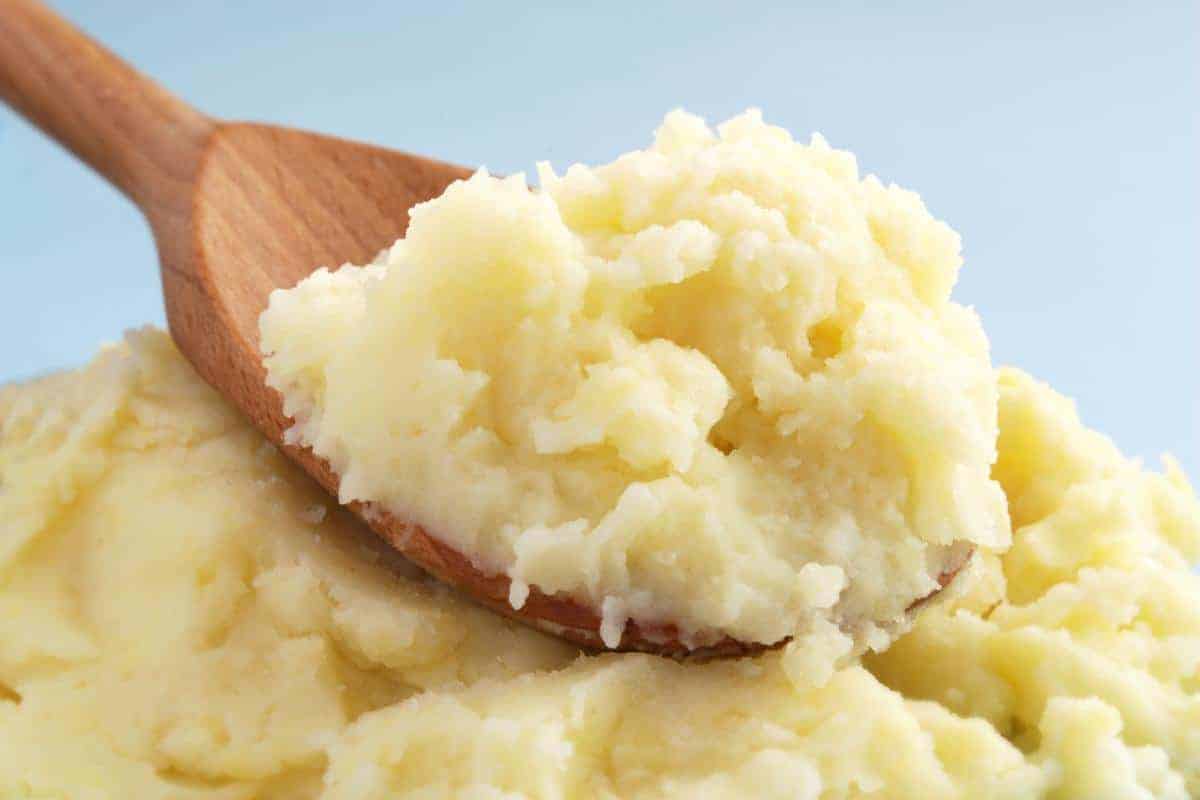
Can you freeze jacket potatoes?
If you are considering freezing jacket potatoes, I highly recommend it. Baked jacket potatoes should be halved, scooped out, mashed, refilled, and then wrapped individually in foil and then plastic wrap.
Defrost for 2 hours at room temperature or overnight in the fridge before reheating in a hot oven or microwave.
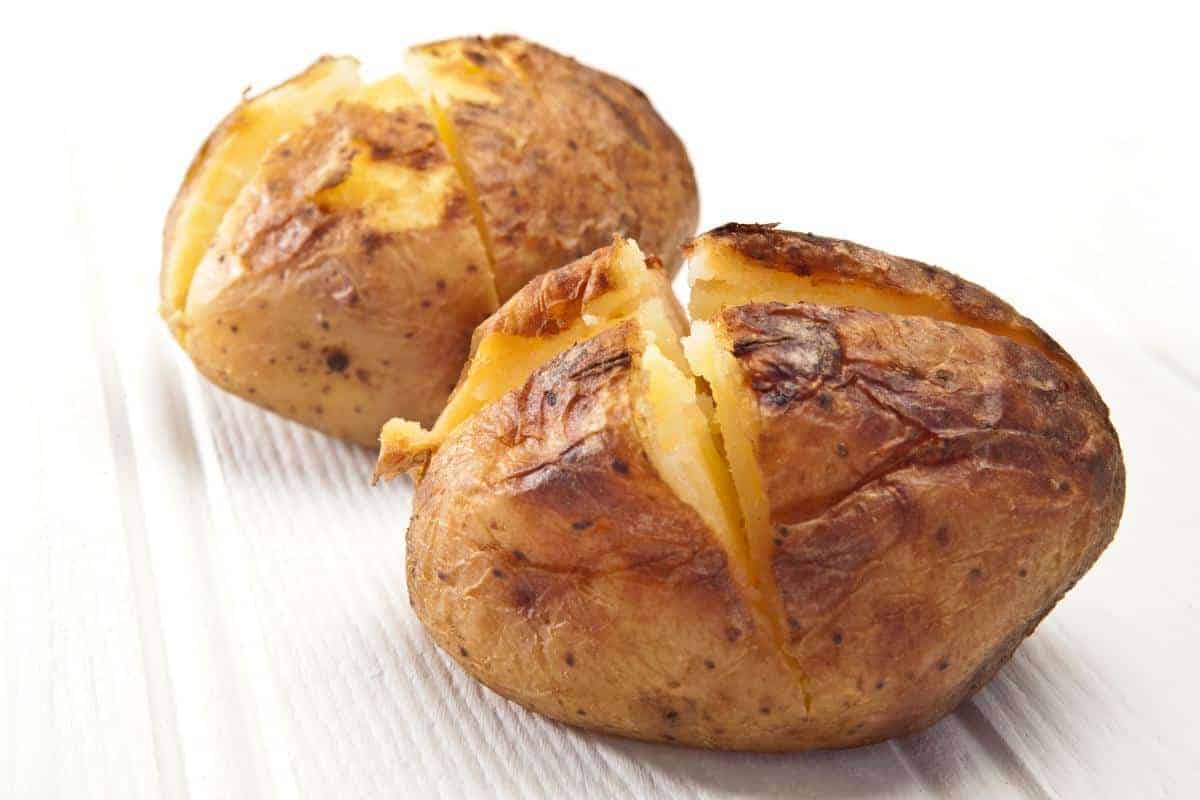
Can you freeze roast potatoes?
If you are wondering how to freeze roast potatoes you have made yourself instead of wasting money on shop-bought roast potatoes then panic no more. It is really easy!
For delicious frozen roast potatoes, fully cook as normal, ideally in large quantities, to really benefit from cooking ahead. Open freeze and bag into small meal-sized portions or one large bag.
To reheat, bring to room temperature and then cook in a hot oven until crisp and piping hot. Why not make your Christmas potatoes in advance and save yourself a job on the day?
Whether saving a glut of shop-bought or home-grown potatoes from the waste bin or planning your meals, you can successfully freeze potatoes.
Don’t forget you can use potatoes in homemade soup, which also freezes. Check out all my potato tips for more ideas.
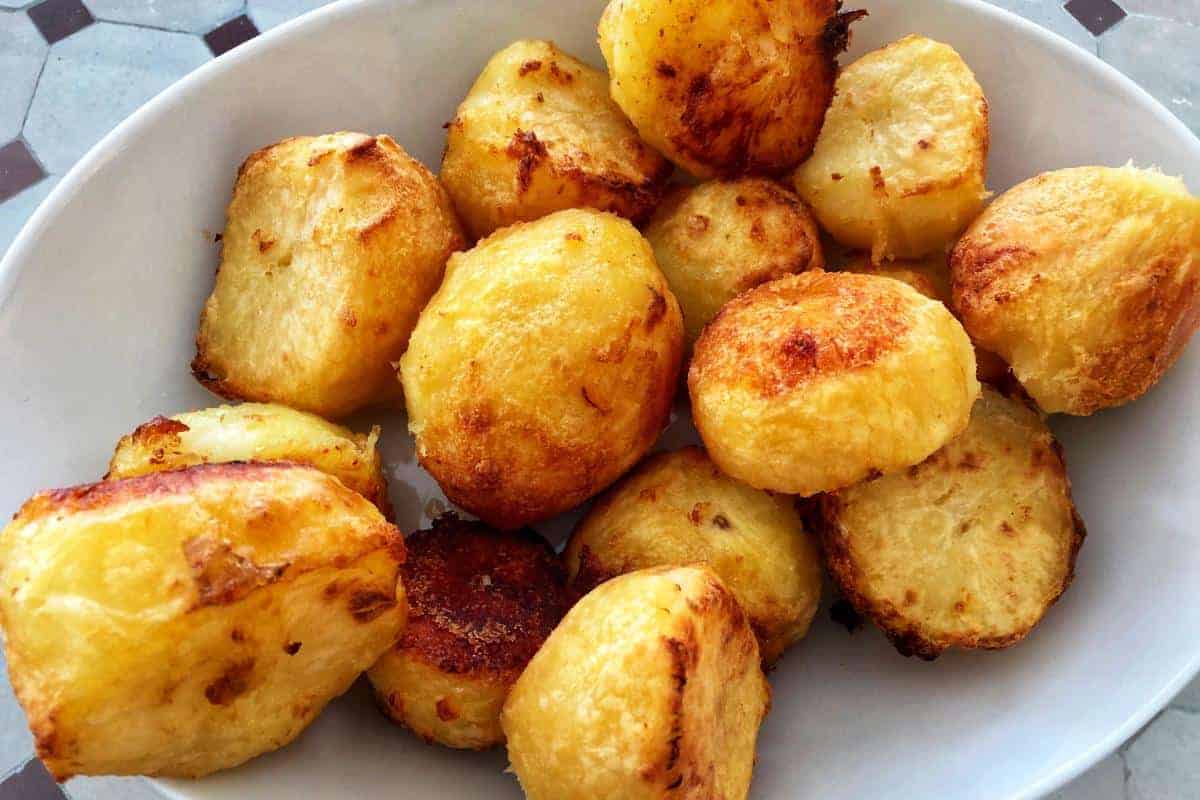
What is the best way to freeze potatoes?
I think the best way to freeze potatoes is by quickly blanching and cooling them before freezing described above. Everyone has different tastes though so you may have different preferences.
Other articles you may find helpful
A recipe for onion gravy that freezes well
How to reduce food waste in 15 easy steps
90 ways to save money on your food shop
Food storage tips to reduce waste
How long can you safely store food?
Top tips for using the freezer to store foods
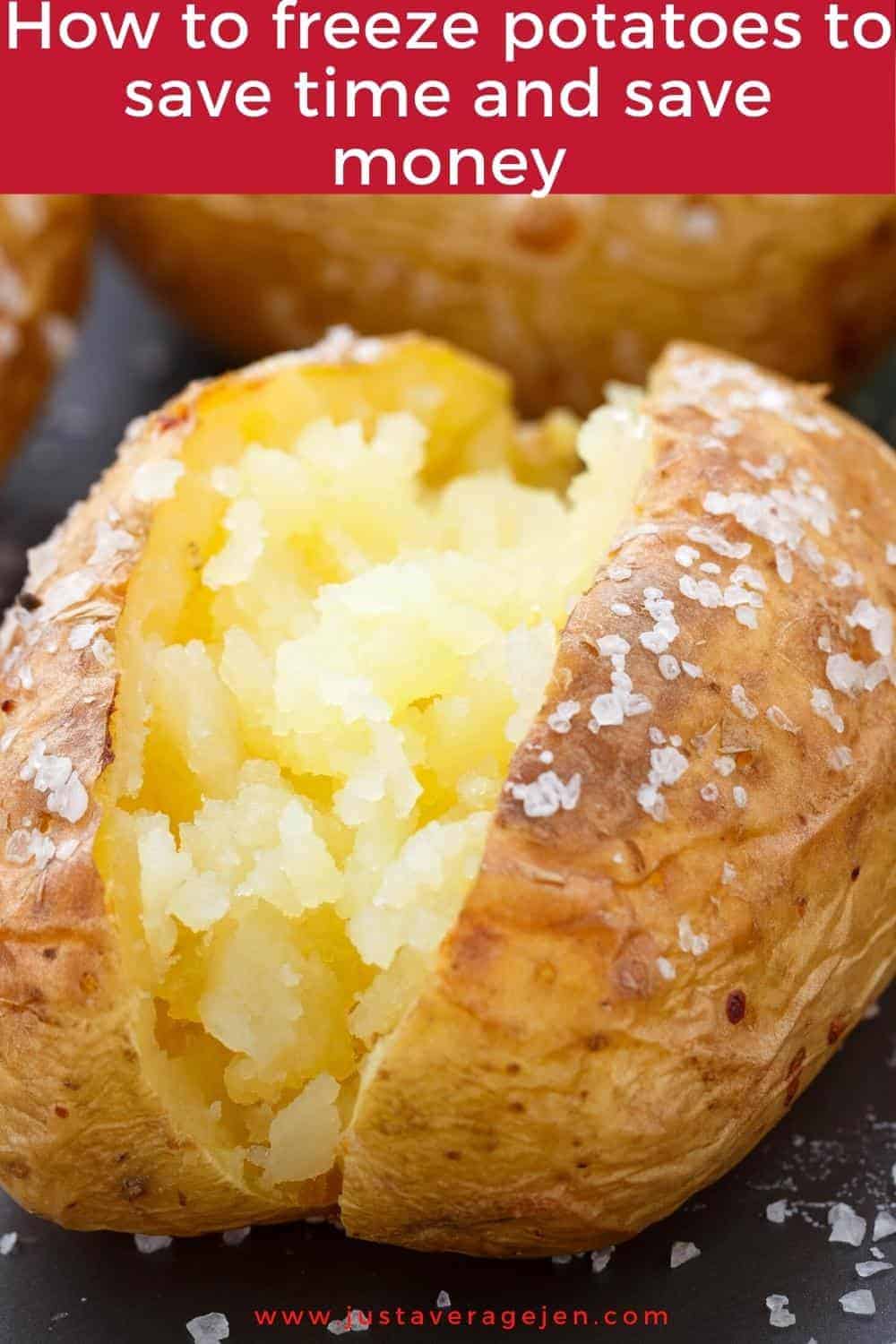
If I freeze potatoes using the blanching method: When I am ready to use them, can I boil them and make mashed potatoes?
Yes that shouldn’t be an issue and would definitely save time and money!